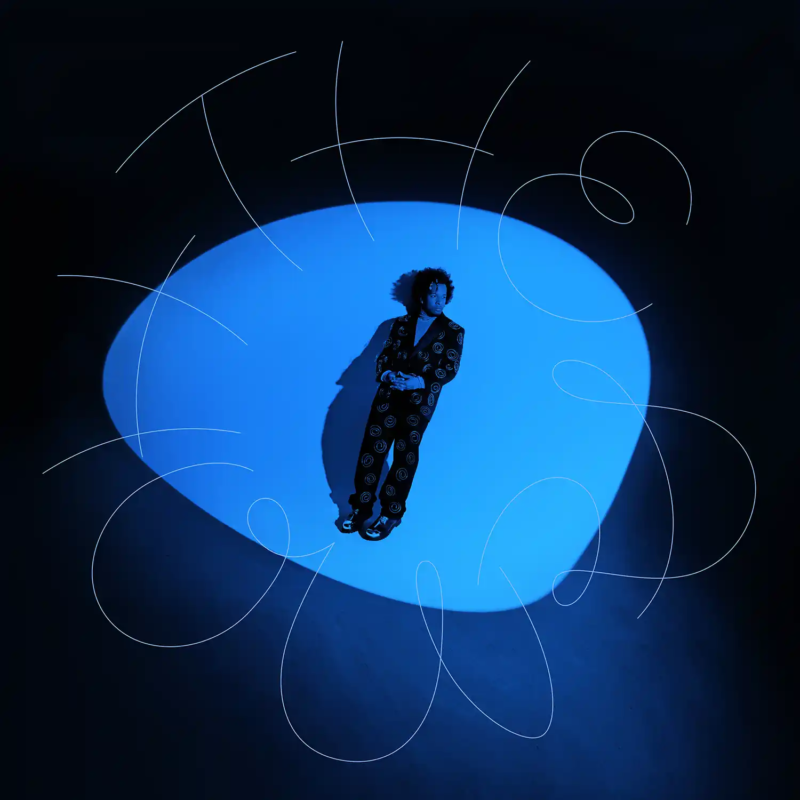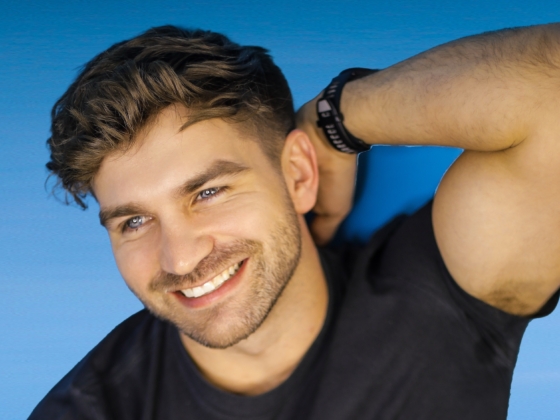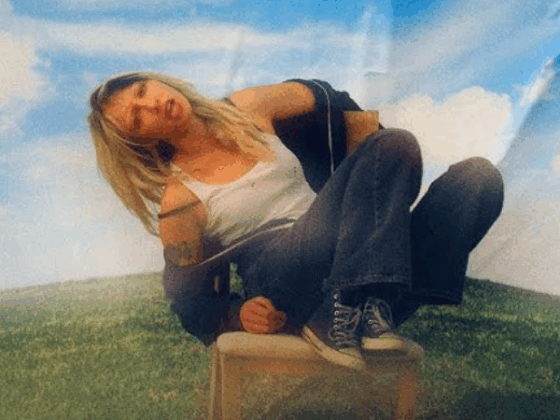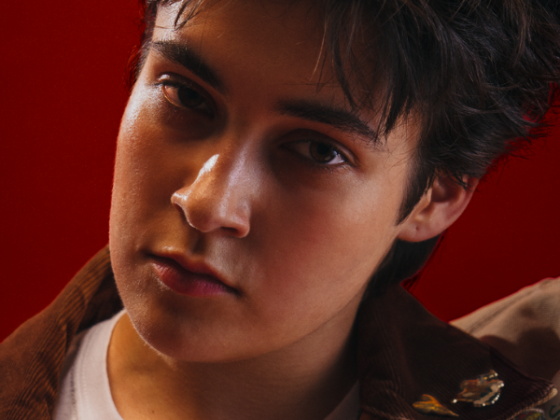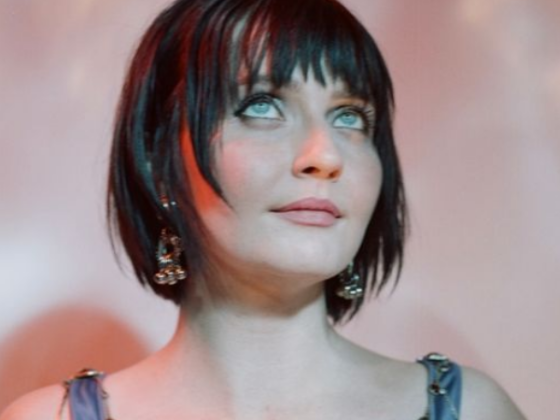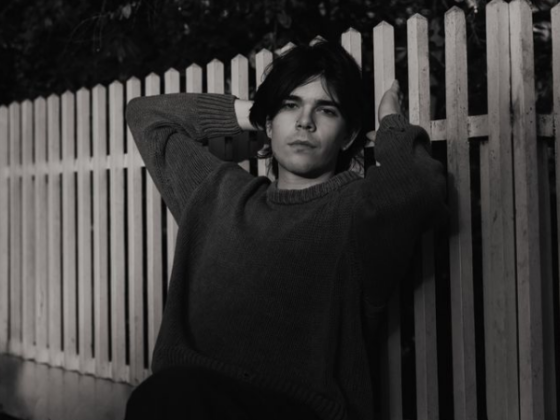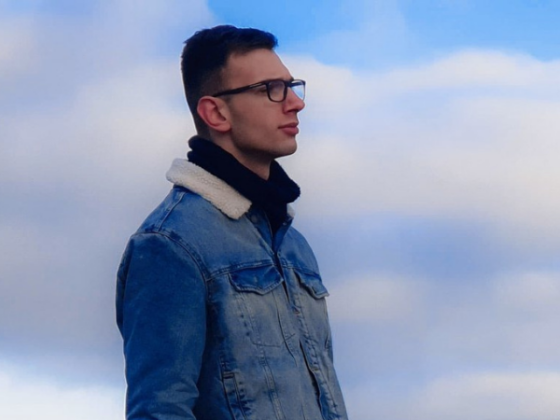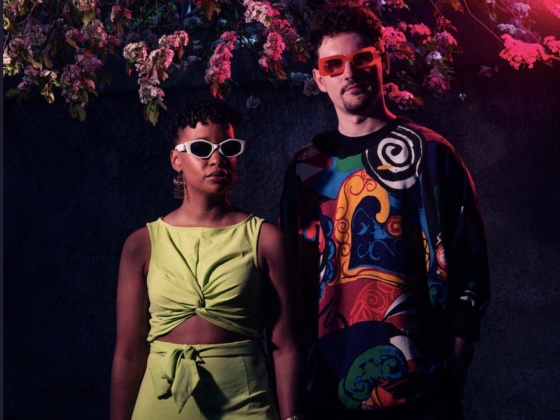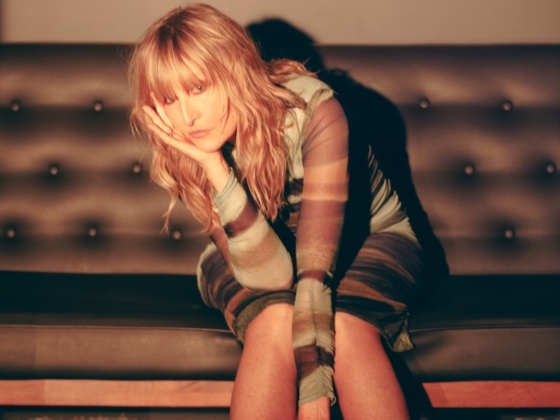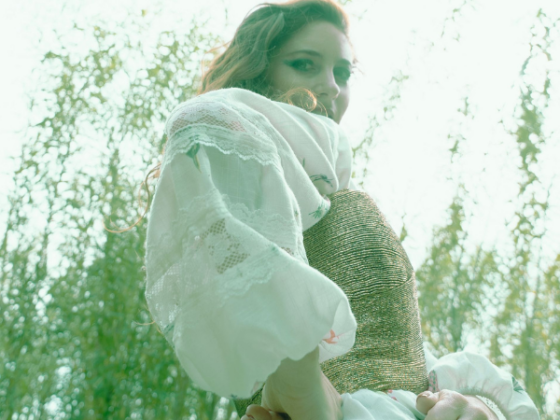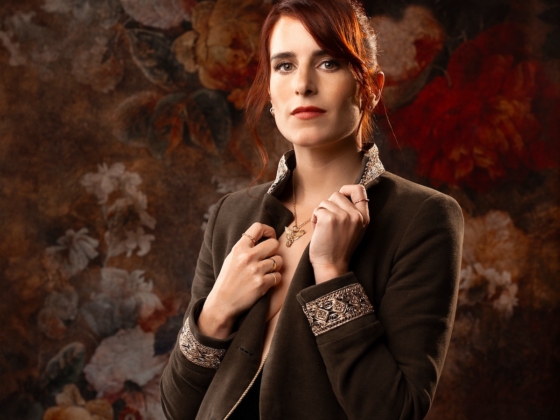Joshua Karpeh, also known as Cautious Clay, has always been deliberate about how he builds sound.
On his latest project, The Hours: Night (out 10/24, Concord Records), the singer-songwriter, producer, and multi-instrumentalist turns time itself into a framework for storytelling. Each track unfolds across the hours between 9 p.m. and 4 a.m. that trace moods ranging from restless to romantic and raw.
It’s the follow-up to The Hours: Morning, released earlier this year, and together, the two projects form a day-long meditation on connection, mood, and the way emotion shifts with light.
Co-produced with industry heavyweights (Kehlani, Lil Wayne, Reneé Rap, Ant Clemons, Wale, and Raphael Saadiq), the songs use a mix of orchestral strings, jazzy tones, and a pop-friendly or slow groove bassline.
Reflecting on the new album, Cautious adds, “‘The Hours: Night’ is the pure juxtaposition to the morning (clearly). I wanted the music to capture the feeling of being out at night with a bunch of loose plans and few expectations. I consider myself a night person, so this album was easier to make than the others. The night hours were, perhaps, more familiar.”
Across his career, Cautious Clay has moved fluidly between genres and roles, from producing for artists like Billie Eilish, John Mayer, John Legend, Khalid, Kavinsky, Melanie Martinez, Remi Wolf, BTS’s V, and most recently, Tycho to crafting his own distinct, emotionally intelligent catalog.
In conversation with EARMILK, he opens up about what it means to capture time through music, his evolving relationship to production, and why authenticity still matters in an age of AI and algorithmic sound.
Your latest album, The Hours: Night, is structured around specific hours of the evening from 9 p.m. to 4 a.m. Since each track corresponds to an hour, how did you conceptualize time and routine as musical themes, and how did those ideas shape the sound or lyrics?
I felt every hour of the day was a distinct feeling to me. It's difficult to describe, sort of like eggs for breakfast and pasta for dinner. In the past year, I was trying to write a bunch of songs that felt like particular times of day, sonically and lyrically. It sort of became this light conceptual album. I wanted to create something that felt like it could match the energy of the time.
I wanted to inspire people to listen more consciously, particularly in today's age, a lot of things feel a little bit like filler, you know? It became a challenge for me. I wrote like 60 songs over the course of the last year.
A lot of them are not coming out, but a few that I liked were the ones that made the album. When people are listening to the album, they will hopefully find those deep moments and resonate with what's there.
Are there any songs in the album that you made at a specific time that actually made it to the time slot?
Yeah, that was the thing. I tried to start writing songs at a particular time, but it didn't really work super well. So that's why I was like, okay, let me just start making a bunch of music and not think about the exact time until after the song is finished.
My song, “Art Museum,” feels very much like genuine longing, a lot of which happens at night. That was kind of my approach to the process.
You started as a producer and multi-instrumentalist before fully stepping into the spotlight as a singer-songwriter. How has that technical background shaped the way you build songs now, especially when balancing vocals, lyrics, and production?
It's been a big learning process. I've been producing for so long and writing for so many different people in different situations. I think it's really become just natural and super instinctual.
When I have to fill in for a particular kind of sound or a particular kind of feeling, it feels exciting, and it doesn't necessarily feel challenging. I really just spend a lot of time trying to focus on what type of song I want to make and then what I want the focus of the song and it's instrumental to be.
I think the best producers are able to produce certain sounds out of music so as not to overwhelm a particular element. I went through a period where I was a very maximalist-sounding producer, but that was before anyone knew who I was. That period of time was super important for me to understand how best to coach music.
You know, I haven't even really thought about that question in a long time.
So it's interesting that you're asking now, because I've been producing music since I was like 17. I'm 32 now. I'm not a master, but I put in a ton of hours. I know how to get out of my own way, but I also know how to work with entire groups of people to make sound.
But then the fun part is where you get to really create space. Here's a drum break. Here's a part for the guitar to stick out and have a vocal. And I mean, even just to speak to that whole thing around AI music. I've heard a lot of songs with AI. I've heard some songs that are AI that I actually like a lot.
Oh, that's controversial!
I know it's controversial, but it's true. And I'm not saying that I'm a pro. I have a whole other political opinion about AI in general.
I think that AI should be taxed at a high enough rate, similar to cigarettes, so it’s not interesting for people financially. 70% tax, and then that should go directly to education. But that's a pipe dream in this generation right now.
That's a really good idea though. I've not heard of that one.
I'm not a politician, but hey, this is my idea. (laughs)
One thing that is lacking in AI music is decision-making around certain sounds.
You would never put a hi-hat where the snare is [for example]. There's not as many dynamics, and it's not because dynamics isn't popular anymore, to be honest with you. It's just not in music at all. That's why AI music has become popular, because it's like Oh, wow, I can just make some shit in the background. It's pleasant, you know?
I like pleasant music as much as anyone else, but I do think that there is a science to making music that connects people. People will sing my lyrics, and it's cool to see that again.
I'm on tour right now, and I totally forgot how much people just connect. It’s a reminder because anybody can make something pleasant, but when you make something that genuinely connects to a person. They're like, ‘damn, I fuck with that shit.’ I don't really worry about AI. Music doesn’t have to be avant-garde for the sake of being avant-garde, but you should be able to tell that someone made this shit.
When you’re writing, are you more driven by personal experience or concept?
It's definitely a combination of personal experience and concept. I find it important to have something to write about, so that's the personal experience and then concept, it's almost like a thesis in some ways, where you can really start with an overarching theme and not make it too conceptual. I think that personal experience vs. concept is probably like 60/40 or 70/30. I'm a very emotional guy, and so whenever I'm having a feeling, it will always seep into what I'm writing. The environment that I'm in also makes a difference.
I do feel likeI have the ability to write in any kind of environment, but that environment and the people I’m around will undoubtedly affect me while I'm making the song.
Your lyrics explore that emotional side that you mentioned — identity and self-perception, belonging, control, and growth. How has your sense of self evolved since your early EPs, and how does that show up in your new music?
That's a good question. I think I'm much better at understanding how to communicate my thoughts through writing. I think I have been chanced on to it a lot of times earlier in my career, but I think now my ability to draw concepts out of a feeling is stronger. It’s much quicker for me to unpack ideas.
I don't know if you’ve heard this before but 'are you a lake person, a beach person, or a mountain person?
[When I was writing] I was like okay…[I wrote] whether it's beaches or mountains or lakes, you know, I would go wherever it takes. So every time you're around me, I feel home.
That's an idea that is super simple, but I make it feel personal when I'm writing. I'm attaching [the feeling] to this idea, this human experience. I feel like I'm attaching experience to things that we all go through. It's beautiful, and it's an easy way to connect to people immediately without feeling deprived.
Yeah, absolutely. That's the great thing about music, about poetry. You can get your point across and hit that emotion right on the head and have someone else understand it without saying too many words. You don't have to write an essay or give a speech. The feeling is right there in the lyrics.
Yes, definitely! I also try to challenge myself. I'm always kind of tinkering and just making sure I'm not losing myself in something, but I feel like I know when to let it go and when to just go for it.
Being an artist is also one of those things that is so hard for people to understand unless you are one. I'm always defending the artist for the most part–even if it sounds crazy.
Your discography blends a lot of different sounds like R&B, indie, and electronic tones in really fluid ways. How do you approach genre? Do you see it as a guidepost, a limitation, or a tool for communicating your artistry?
I think it's a tool. I've gotten into reggae a lot lately. I'm not a reggae artist, right? So I think it's a tool. Limitations can also offer you gold like guiding posts.
I think this whole idea of genres in music is a lie. Sometimes I just find that to be like an excuse for making something, but on the other hand I think it connects people in a way. It's ultimately just people trying to find something.
In the broader sense, placing Black artists inside these different genres is intentionally limiting. Someone will be doing pop-punk, but the media says she's really singing R&B. Another artist says they're making rock songs, but all their music is being labeled as hip-hop. It’s done to place Black artists into boxes and define them.
Yes, I was gonna say that’s a lack of education and their ability to define something correctly. I’m like: "dude, maybe don’t call this Black artist R&B if they literally make Rock & Roll."
Exactly! That's the hill I'm dying on right now. You’ve collaborated with artists across genres, from John Mayer to Remi Wolf to Aluna. What do you look for in a creative collaboration, and how do you maintain your own identity while working with artists who create across genres?
Good question. Usually, I just try to listen to what the artist is doing. I don't know what space I'm occupying on that particular day. I try to just be myself in the room, but also see what the other person does a little bit. If I'm feeling like they're leaving me space, then I'll just kind of do what I know instinctively.
When I work with other artists for the first time, I try to get to know them as well. I just try to have a conversation more than anything. I also try to be open and non-judgmental and have quiet confidence without disarming people at the same time. It's really case by case.
How do we define our identities? For me, it's easy because it's my voice.
Being an artist [in the room], you have a lot more freedom to just be yourself. You don’t have to worry about what people are thinking and feeling. That's the producer's job.
A lot of times, the producer's job is to make people feel better about themselves. And they write a song, and then it's a hit. So I don't know. That's the cynic in me, but I just think it's a different modality.
Looking ahead, what sounds or ideas are inspiring you lately? Are there any sonic directions, instruments, or themes you’re experimenting with that might surprise listeners?
Oh, that's a good question. I'm not sure yet, right now.
I have this night album coming out on October 24th, and I'm going to be finishing out this sort of three-part album. That's what I'm excited about. And also approaching the live show a little bit differently in the future.
There's a couple of really great collaborations that are coming out pretty soon, which I'm excited about, too. I worked with Raphael Seguin recently, and that was really awesome–being able to work with a legend.

